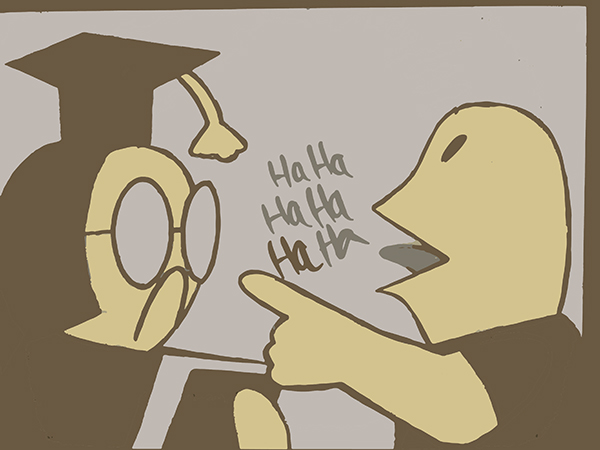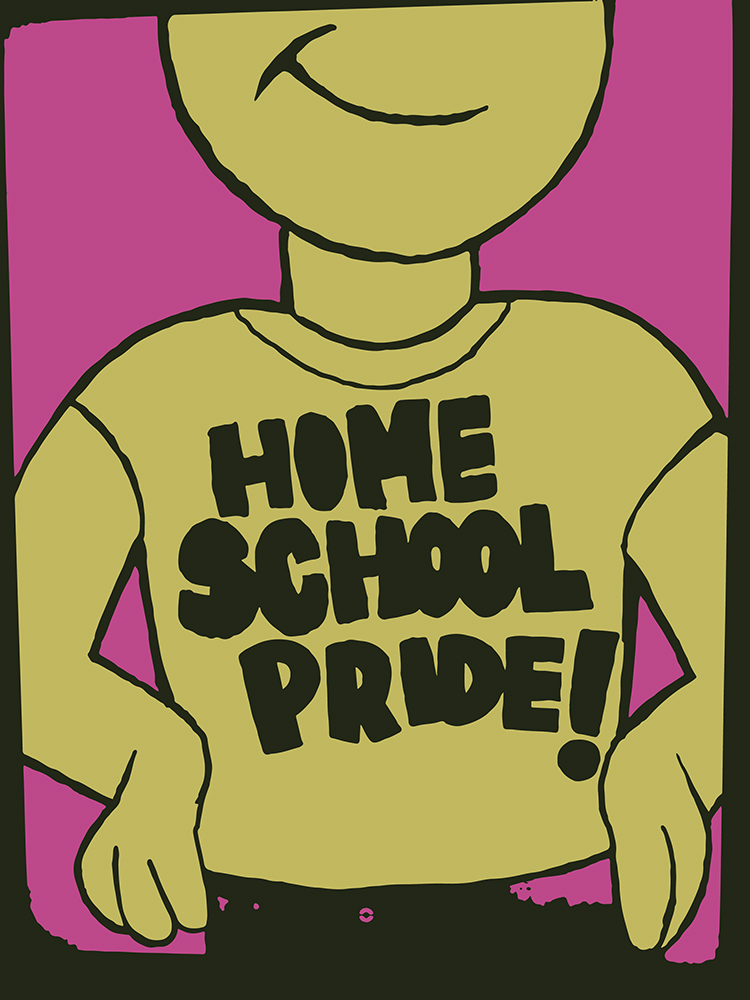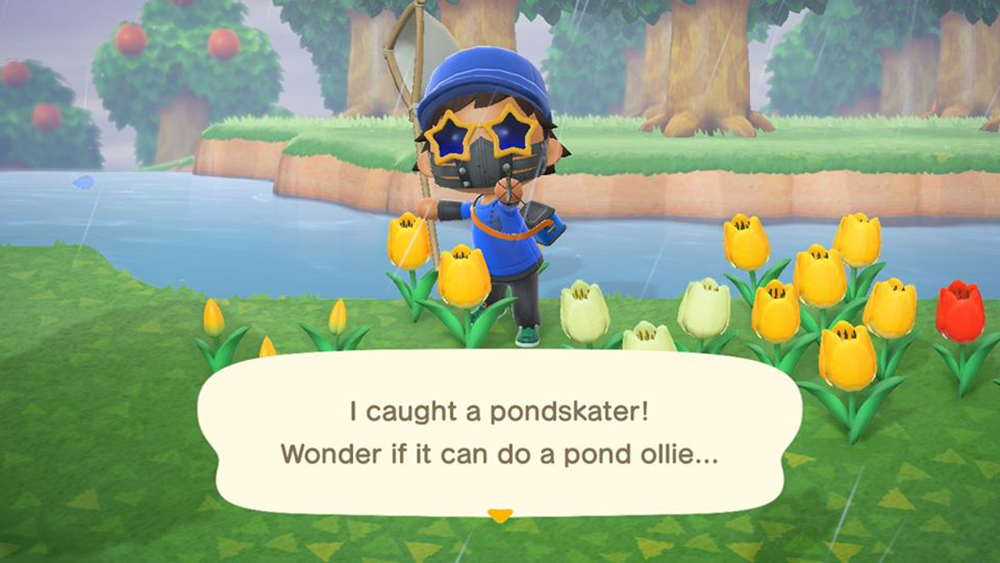When I’m getting to know somebody new, there’s one question that I always dread: “Where did you go to school?” It’s not because I’m ashamed of my answer; no, I’m proud to say I was homeschooled. What gives me apprehension is the other person’s response. Some people say, “Oh, that’s cool!” and continue on with the conversation, others are intrigued and want to know more. But then there are those that will take on a judgemental tone and ask, “Why?” They make their opinion known that homeschooling is for weirdos who don’t have any friends…and they say it right to my face.
Homeschooling isn’t rare: A 2013 report from the U.S. Department of Education showed that 3.4% of school-age children are homeschooled. So why are people so weirded out by it? I think it’s because they don’t understand it; the easiest reaction is to laugh at it.
The concept is simple: Homeschooling is getting an education at home. This is typically done in the preschool–twelfth grade years. Some kids are homeschooled through eighth grade and then go to traditional high school, while others are homeschooled the whole way through. I started homeschooling in sixth grade, continuing through high school. One kid in the family can be homeschooled while another goes to a traditional school. It all depends what works best for each family. Parents can choose from a variety of homeschool curricula, or they can enroll their kids in online school if they don’t want to do the teaching themselves. Because I speak French, people assume that my parents are French, but they don’t speak a word of the language—I took classes from The Potter’s School, an online program. People can homeschool even if they don’t want to teach their kids; they just need to find the right resources.
What makes a parent choose to homeschool their child, then? For my parents, it was a combination of reasons, most importantly being the fact that I had severe anxiety and was in tears almost every day from the stress of going to public school. Being away from home all day was difficult for a kid as tightly wound as I was. Another contributing factor was that my elementary school had too many kids for one teacher, and as a result, none of us got very much attention. Being a quiet, well-behaved kid, I went virtually unnoticed. I was ahead of my grade in some subjects, like reading and writing, but I couldn’t work ahead because everybody had to go at the same pace. Instead of learning further, I spent a lot of time sitting around bored. My teacher wouldn’t let me read a book or work on my homework while I waited, and I was frustrated at the wasted time. Finally, a detrimental aspect of public school were the standardized tests we took each year, each one requiring several weeks of preparation—the phrase “teaching to the test” sums this process up well. My mom chose to homeschool me because she wanted me to be able to learn at my own pace in a calm environment. 74% of parents choose to homeschool for the same reason that my mom did—because they aren’t satisfied with the education their child is receiving in traditional school.

All illustrations by Ciaran Dillon
A common belief is that homeschoolers are religious. This is the case for some people, but not for everybody. The U.S. Department of Education reports that, as of 2013, about 77% of parents choose to homeschool because of “a desire to provide moral instruction,” which most often translates to religious beliefs. Not all homeschoolers are devoutly religious, though. Just like among traditionally schooled kids, they range from staunchly atheist to devoutly Catholic. You can’t predict someone’s religion by knowing their education.
Another assumption that lots of people make is that homeschoolers are sheltered because they don’t get enough socialization. Again, it depends on the homeschooler. There are organizations called co-ops where groups of homeschoolers come together for offered classes. This provides an opportunity to socialize and learn in a classroom setting. The classes usually meet once a week. Portland has a renowned co-op called Village Home that attracts people from as far as Washington, where “learners choose classes and enjoy learning without testing or grading.”
Being homeschooled means that age and school grade don’t mean much to us. Some of my best friends are younger or older than me. Growing up, my best friend was my younger sister. Despite our six-year age gap, we spent every waking hour together, playing with dolls and writing stories. I had friends my own age, but none quite like my sister. The idea that a person should only hang out with people their own age has always struck me as limiting. Just because someone’s older doesn’t mean they’re smarter. My sister is a geography and history nerd who delights in sharing cool facts, so I’ve learned a lot from her. Being friends with my younger sister meant I could embrace my inner child without worrying what other people would think. I wasn’t pressured into giving up my stuffed animals or dolls; I could just do what made me happy. As for socialization…it’s true that I was lonely sometimes, but I was also lonely when I went to public school. Making friends is hard for everyone, not just homeschoolers.
The best part of homeschooling for me was being able to learn at my own pace. Have you ever started working on something and gotten immersed in it, but were forced to switch to another activity? Homeschooling means you can just keep going without being required to spend exactly 50 minutes on each subject. Some days I just worked on French, and other days I did an equal mix of subjects. Homeschool also takes into account that some subjects are harder for some people than for others. For instance, math is my weak point, while languages come easily to me; so I had to spend about twice as much time on math as I did on everything else. That doesn’t work in a traditional school setting, when everyone has to work at the same pace, but the flexibility is helpful. It also meant I had more time to devote to my interests because I wasn’t stuck in a classroom for eight hours a day. Homeschooling is the reason I was able to start French in sixth grade, so by the time I graduated, I was nearly fluent. It’s great for kids who do activities that take a lot of time, like intensive sports. In addition, homeschooling can be a good choice for those with learning disabilities who aren’t comfortable in a classroom because the environment can be configured to make it right for their needs.

I’ve encountered a startling amount of anti-homeschool bias in my college experience. In my very first college class, Intro to College Writing, we had to present an essay topic to the class. My essay was about homeschooling. In front of the whole class, my professor made her opinion known that she thought it was an inferior form of education. “I’m not going to decide to be my child’s dentist,” she proclaimed. “Why would I try to be my child’s teacher?” All I wanted was her feedback on my thesis statement, not a debate about the validity of my education, but I did my best to present my side of the story. However, she wouldn’t back down, seeming to take my defense of homeschooling as a personal affront. I finally told her that I was a senior in high school, starting college classes early while I finished up my high school diploma. “If I’m too immature for college, I’m sure my grade will reflect that,” I finally said. “But I’ve been getting along just fine in this class, and I’m glad I was homeschooled.” Homeschooling actually prepared me well for college because I knew how to manage my time and study on my own. I got an A in that class, with my professor saying that my essay made her take homeschooling more seriously. This experience actually helped me find my passion for writing.
The negative attitude toward homeschooling didn’t stop with that incident, though. It’s everywhere, from the comments people make to how homeschoolers are portrayed in the media. Ignorance is understandable; people don’t know what homeschooling is really like, so they’re bound to misunderstand. I’ve gotten all sorts of questions: “Can you go to school in your pajamas?” “Does that mean you don’t have any friends?” “So that means you never talk to people?” The answers to those questions, respectively, are: “If I feel like it,” “Yes, I have friends,” and “I’m here talking to you, aren’t I?” Don’t get me wrong: it’s good to ask questions and I love telling people about homeschooling. However, some of the questions people ask are downright insensitive. If you ask a question because you genuinely want to learn, that’s wonderful. But if you ask a question with your mind already made up, that’s not a recipe for a productive conversation.
Like everything, homeschooling isn’t perfect, and it’s not for everybody. It offers ample opportunities for abuse because parents can have their children around all the time. Some parents don’t provide a good education for their children, leaving them at a disadvantage when it comes time to enter the working world. There are bad reasons to choose homeschool, just like there are bad reasons to send your kid to public school. “I couldn’t stand to be around my family that much!” is a common response I hear, and that’s valid! Regardless, homeschooling should always be an option for families who wish to choose it.
Honestly, telling people I was homeschooled can be scary. There’s a time and a place for critiquing the education system, and when I’m having an ordinary conversation, I don’t want to have to justify myself to someone else. In Portland, a city that considers itself radical and accepting, why can’t we extend that acceptance to homeschooling? For many of us, homeschooling is a mindset. It means that everywhere is a classroom and everything is a learning experience. Being a homeschooler is part of my identity. I want people to understand that homeschoolers are just like everybody else; we just learn a little bit differently. Difference isn’t a threat. It’s what makes the world more beautiful.





